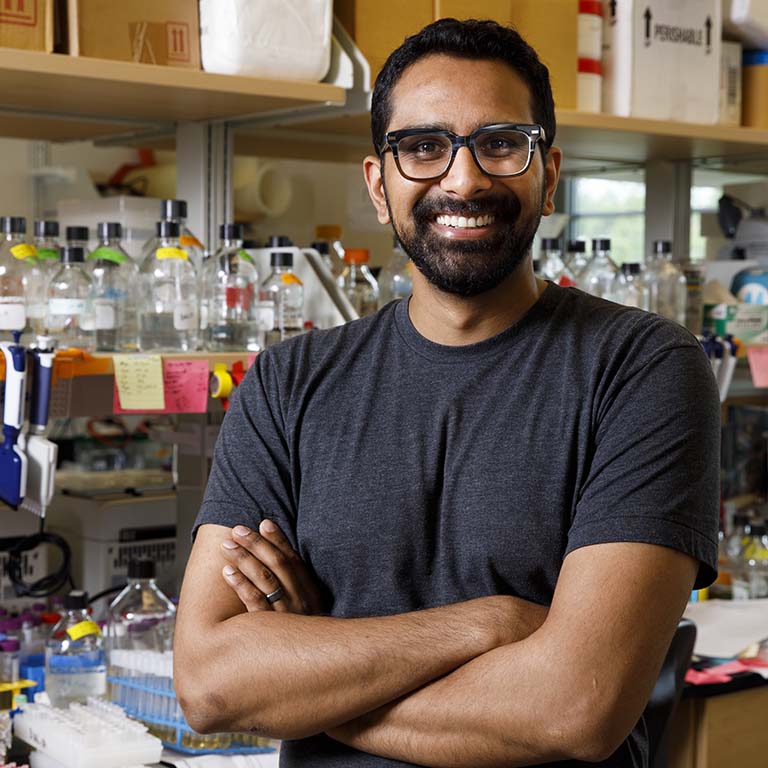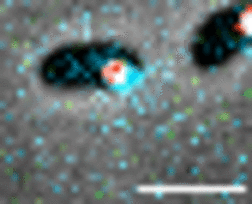Bacteria can gain novel traits, like antibiotic resistance, by sharing DNA with one another through processes cumulatively termed horizontal gene transfer (HGT). Natural transformation (NT)—a process by which a bacterium can take up free DNA from the environment and then integrate that DNA into its genome—is a major mode of HGT that contributes to the rapid spread of antibiotic resistance determinants and virulence factors in bacterial pathogens.
Understanding HGT, NT, and related processes may uncover novel approaches to combat diverse clinically relevant infections.
Ankur Dalia, an associate professor in the College of Arts and Sciences' Department of Biology at Indiana University Bloomington, uses the bacterium Vibrio cholerae as a model system to study the mechanisms and regulation of NT. V. cholerae is the causative agent of the diarrheal disease cholera. Rather than studying the virulence of the pathogen, however, Dalia and members of his lab leverage this model system and the genetic tools they have developed to study NT in a physiologically relevant context.
They have extended a fundamental understanding of a number of critical and conserved processes shared by diverse microbial species, including many pathogens. Their work has furthered our understanding of HGT as well as provided fundamental insight into conserved bacterial processes that influence NT—including bacterial surface appendages called type IV pili (used to take up DNA from the environment), signal transduction, gene regulation, and DNA metabolism. These studies have filled major gaps in our understanding of NT, and they are broadly relevant to the virulence and evolution of diverse bacterial pathogens.
National Institute of General Medical Sciences, a section of the National Institutes of Health, has extended Dalia's R35 MIRA (Maximizing Investigators' Research Award for Early Stage Investigators) for another five years, granting him $2.34 million to continue his research. The MIRA provides researchers with greater stability and flexibility which in turn enhances scientific productivity and the chances for important breakthroughs.
Dalia's lab is moving forward with a three-part plan.
First, using live V. cholerae cells, the researchers will investigate the currently poorly characterized mechanisms that regulate the dynamic extension and retraction of type IV pili. They will address how motor ATPases, minor pilins, and other environmental cues regulate pilus dynamic activity.



 The College of Arts
The College of Arts